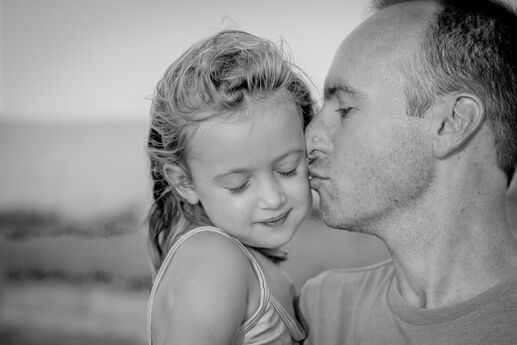Second Pregnancy: Having Twins this Time Around
Twins run in the family, but I never really thought about it. My oldest, Rowan, had bad reflux and was up a lot crying, and we thought, ‘We’ll just have the next baby close to this one. That way we’re not doing this for 10 years!’ We didn’t think it would happen so quickly.
When we had the ultrasound, I think my husband, Michael, was probably more shocked to find out we were having twins than I was. He said, ‘I have to sit down, I don’t think I ate breakfast.’ I’m a planner, so I immediately thought, ‘Okay, how are we going to do this? What are the steps?’ There are only 16 months between Rowan and the twins!
During my second pregnancy, I wondered how I could share my love with another child so soon after the first, let alone three children. That was one thing I had to realize would all work out. I didn’t know what to expect from Rowan, and everyone said to me, ‘Oh, she might be jealous.’ But honestly, she was too young to know. As a 16-month-old she was very self-absorbed and she just did things the way she wanted to.
Physically, it’s hard; there you are with two car carriers. I think my arms were in the best shape they had ever been! And Rowan was young, so doing everything was a lot more time consuming. You don’t always want to go around with a stroller for three -- it’s physical juggling.
One of my good friends had twins, and her main advice to me was to schedule. You need to be as scheduled as possible, and don’t let those two babies deviate from each other and Rowan. That’s not as true at the beginning, but as soon as we could get them situated on an eating and sleeping schedule, we stuck to it. It really did work and that was probably the best advice I’ve received.
The best advice I can give: Leave extra time for everything. That way you have a few extra minutes to catch up if things don’t go perfectly. Oh, and always take a change of clothes for yourself, because now you have two kids who might throw up on you instead of one.
Consider yourself lucky to have twins the second pregnancy. You learn so much from the first baby. The transitions through stages for the twins were so much easier because I’d already done it with Rowan. You think to yourself, ‘I’ve seen this before.’ I really thought I was remembering it all. As I got older, I thought, ‘What was their first this again?’ There are days when you just feel like you have no idea. Just go on with the next thing. Try to enjoy it and realize that it is different and it is special.
It’s really been great. The kids always have someone to play with, and my first three have always had each other pretty much from the start. They have their own unique relationships with each other, and for Rowan, it’s an experience that others don’t necessarily have, having twins as siblings. I think that’s been a pretty neat thing. We can’t imagine it being any different.
Photo by frank mckenna on Unsplash







